Emily's story:
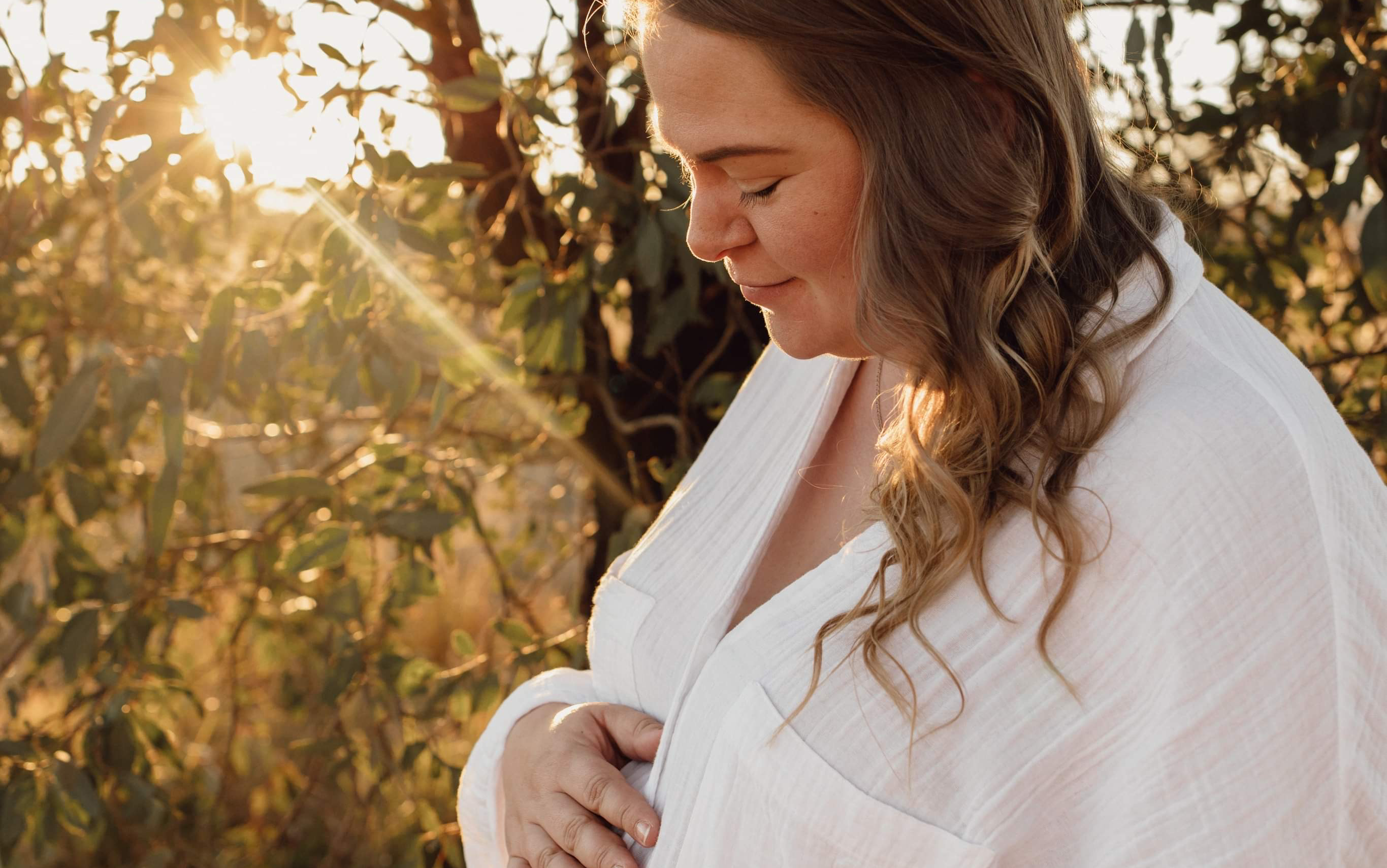
Sponsorship for Perinatal Mental Health Week is not a funded arrangement; no financial contributions are exchanged as part of this recognition.
Before I share my story, I want to say this: if parts of it feel familiar, it doesn’t necessarily mean you have postpartum psychosis too. Many of the things I went through are also common with anxiety or OCD. If you see yourself or someone you love in these words, please don’t try to diagnose yourself. Talk to someone you trust and reach out for perinatal mental health support. You can start by calling PANDA, and if anyone is ever in danger, please seek emergency help right away.
Looking back, the anxiety started even before pregnancy and stayed with me through every stage. I told myself it made sense, it had taken us a while to conceive, and living in a rural town meant I saw a different midwife at every appointment. They were kind, but it was exhausting to repeat my story each time, and the focus was often on risk and weight rather than helping me feel safe. I thought pregnancy would be full of joy, but it was mostly filled with worry and tears after appointments.
To cope, I threw myself into researching birth and informed consent, trying to find control in an unpredictable system. It started out as helpful, but quickly became obsessive. That was probably one of the first signs that I wasn’t coping, and while it didn’t go unnoticed, it made sense in our circumstances. Around 34 weeks, I told my husband, “I feel safer giving birth in the back paddock than I do going to hospital.” That’s when we found a private midwife, and instantly my anxiety eased.
"I threw myself into researching birth and informed consent, trying to find control in an unpredictable system."
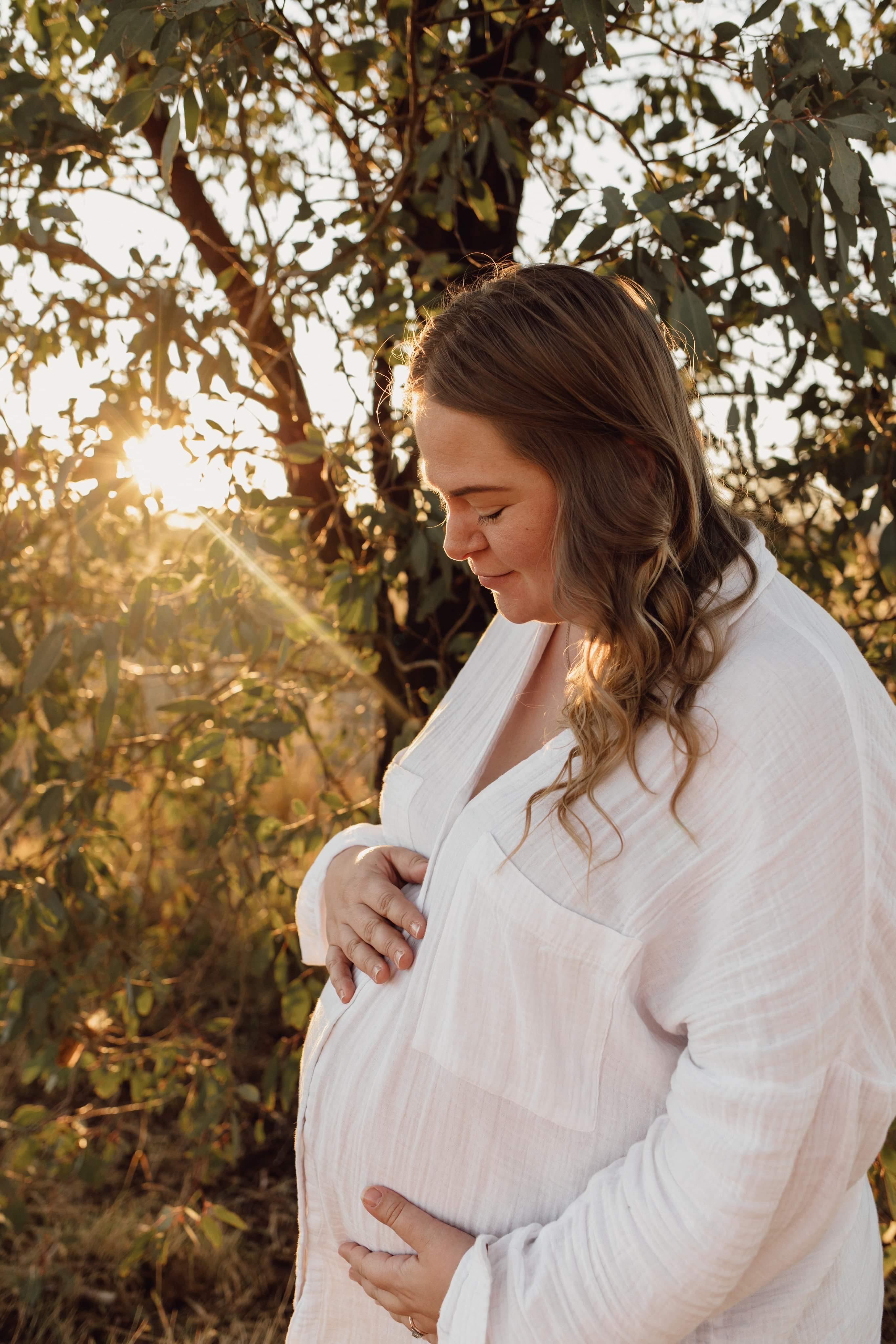
Levi’s birth was beautiful, calm, supported, and everything I had hoped for. I remember holding him at 4am, wide awake and so proud, thinking the hardest part was behind us.
By the morning on the ward, I really started to struggle. I had injured myself during birth but didn’t notice. As the post birth hormones wore off and the pain increased, I couldn’t move freely and the anxiety started to return. The familiar fears I had around birth came back in full swing. I was in a shared room with people I didn’t know coming in and out, separated only by a bright blue curtain, vulnerable and in pain, unable to move. Except this time I had a baby in my arms to protect. My husband and I didn’t get any sleep the night before, so the day felt like a blur. Breastfeeding started to become painful and when my husband had to leave at the end of visiting hours I became so afraid I couldn’t sleep again and didn’t want to put my son down. The next day I was desperate to go home and rest.
"The familiar fears I had around birth came back in full swing."
There’s a photo of me leaving the hospital that still makes me cry. I look so different, the joy had gone from my face. Something deep down told me I wasn’t okay, but we put it down to baby blues and went home.
At home we were surrounded by people who loved on us, brought us meals, prayed with us and checked in frequently. Even though we had the most incredible support, my mental health deteriorated quickly and my moods were extreme. A lot of the time I felt amazing, energetic, chatty, and completely adored our son. I wasn’t sleeping but didn’t feel tired. I became fiercely protective of Levi, worried constantly about anything that could harm him.
"Even though we had the most incredible support, my mental health deteriorated quickly and my moods were extreme."
Those closest to me could see my behaviour changes and knew something wasn’t right, but we put it down to me not getting enough sleep and thought if I slept properly, things would get better. To me, it all felt like “mother instincts” kicking in but it was actually mania and paranoia, warning signs of postpartum psychosis. We focused on doing everything we could to ease my anxiety, help me to stay calm and sleep.
We asked for help at the GP when Levi was 7 days old and were dismissed even though I was already really unwell. We were told that there was no time to help me in that appointment, but the next available appointment was weeks away. So we went home, made the bedroom as calming as we could, a friend bought me an eye mask to help me sleep during the day and my husband did some of the night feeds with milk I had expressed.
As time went on my behaviour became more strange. I was speaking so quickly, often jumping from thought to thought. I became obsessed with documenting every feed and nappy change, I found it really difficult to communicate, forgetting words and finding it easier to use GIFs or emojis to explain what I wanted to say. Repetitive behaviours like playing with fidget spinners or the haptics on my apple watch became calming and I would randomly blurt out bizarre things. Even though my behaviour was so unlike me, we still thought it was just sleep deprivation. But even when I was happy and calm, I didn’t feel tired at all. We didn’t know this was another big warning sign for postpartum psychosis.
Friends and family stepped in during some of the hardest moments. Their presence made a huge difference in helping us feel seen and supported during an overwhelming time and was really helpful for my husband as well. My memories from this period are patchy and scattered. Some moments are crystal clear and traumatic, some of it felt really funny at the time and there’s a lot I don’t remember at all.
The turning point came after a phone call with my aunty, who is a midwife. She had been gently supporting me throughout pregnancy, often checking in before and after appointments. After a few really tough days, I was suddenly feeling great again, talking a mile a minute, telling her how hard things had been but how good they were now, and mentioning that I probably should look into some mental health support. I told her I had the number for PANDA, just in case.
She said something I will never forget, “You know, you won’t lose anything by calling and chatting to them, even if you don’t think you really need it right now.”
She said something I will never forget, “You know, you won’t lose anything by calling and chatting to them, even if you don’t think you really need it right now.”
Not long after that, we had a really bad night. My anxiety was through the roof and this time it was combined with rage. Outwardly I was raging, and inwardly I was terrified and desperately wanted to apologise and settle but I felt totally out of control. I knew that what I was feeling wasn’t normal. We didn’t want to wait days for a GP appointment, so in the morning when I had settled we went to the emergency department. We had no idea what was happening but we knew it was serious and I needed help.
"Outwardly I was raging, and inwardly I was terrified and desperately wanted to apologise and settle but I felt totally out of control."
Living rurally, we faced a lot of challenges and fell through many gaps. We were too far from the private midwife for home visits, the GP focused on my baby instead of me, and when we finally went to the emergency department three weeks postpartum, desperate for help, they tried to turn us away. Thankfully my husband advocated for me, and as soon as a nurse took my blood pressure and listened to how I was speaking, they realised something much more serious was happening.
When I was in hospital, things escalated. I began having auditory hallucinations, and the delusions grew much more intense. I remember feeling like everyone around me was playing a game to try to get me to sleep, but I didn’t understand the rules they were all playing by. All the voices in the emergency department I could hear sounded like people I knew. It was terrifying and confusing, and I didn’t know how to make it stop.
The doctor in the hospital had seen postpartum psychosis once before and knew what medication I needed. Other than that the hospital had never managed a case of postpartum psychosis before, so no one really knew what to do. I was placed under a Treatment Authority, meaning I couldn’t leave, and there was no clear plan about where I would go next.
Our local hospital didn’t have mental health beds, so while we waited to see a psychiatrist, they moved me to the maternity ward where the midwives cared for us. When the psychiatrist finally assessed me, he recommended transferring me to a general psychiatric ward over an hour away, without my baby. I can’t describe how terrifying that moment was for everyone. Everyone that knew me, knew my biggest fear was my baby being taken out of my sight and that being separated would make things way worse. Thankfully my husband, friends and the midwives refused to accept that as the only option. They fought hard to find a better solution and eventually secured one of just eight public beds in a specialist Mother Baby Unit on the Gold Coast. That decision changed everything. It meant I could receive the care I needed while keeping my baby with me. I still think about how different our story could have been if those midwives had not spoken up for us.
"I still think about how different our story could have been if those midwives had not spoken up for us."
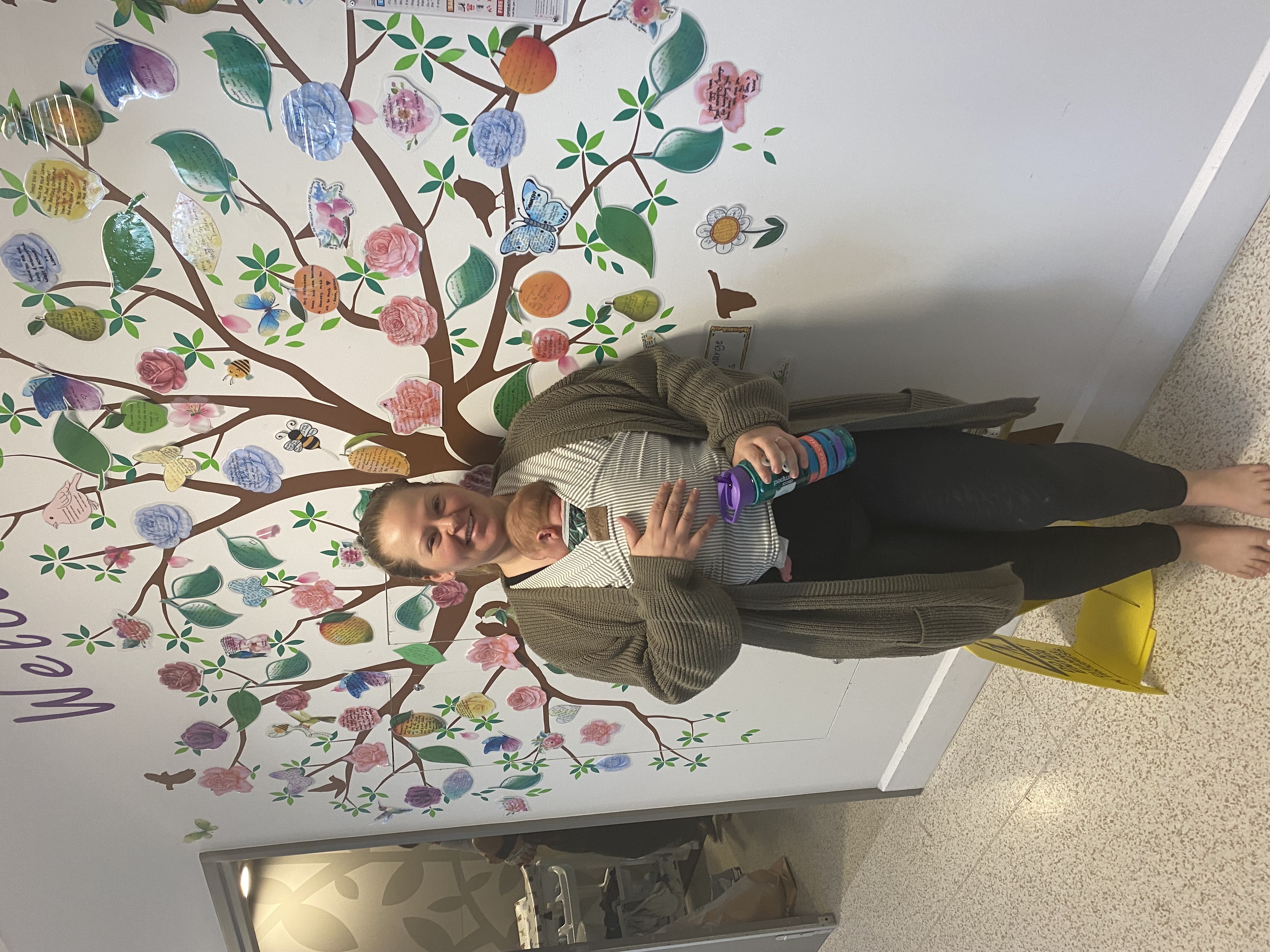
Being in the Mother Baby Unit was both a relief and a challenge. I was finally in a place designed to help me recover while keeping Levi with me, but being away from my husband was incredibly difficult. My husband, my dad and my brother visited as often as they could. At first, I didn’t feel like I could trust anyone, and I really didn’t like how drowsy the medication made me feel, even though I knew I needed it. I resisted and I fought a lot during my recovery, really struggling with not being in control and having to accept help from strangers.
Over time, I started to build trust with some of the nurses. One I will never forget always wore colourful, dangly clay earrings. She was like a ray of sunshine and hope. One day, she shared that she had also experienced postpartum psychosis with her first baby, and that with proper mental health support she went on to have three more children without another episode and that’s why she changed careers to become a mental health nurse! Her story helped me hold on to hope that recovery was possible for me too. Another nurse shared my Christian faith, being able to talk with her about something so meaningful brought me comfort I can’t put into words. At all hours of the day and night they would help me swaddle, settle, feed, rock and care for Levi, showing me their tips and tricks and they adored him as much as they cared for me. Their genuine kindness, patience, and understanding helped me start to feel safe again, to trust others, and to take the small steps toward healing. When I levelled out I started to connect with other mums. Being allowed to leave the hospital and go for a walk for coffee with another mum and our babies in prams went such a long way to making me feel normal again. I’m still so grateful for our coffee walks.
With specialised care, support, and patience, I gradually recovered. The psychosis symptoms were brought under control quite quickly with effective medication. The bit that took longer to work through was the sadness about how it all unfolded. I feel like postpartum psychosis ripped out from under us the precious newborn season we were looking forward to and it was really, really hard. Not just for me, but for my husband, family and friends as well.
"With specialised care, support, and patience, I gradually recovered."
Looking back, I can see how important early recognition and professional help are. I want other families and clinicians to know more about this rare but serious perinatal mental illness so that new families can get the support that they need, when they need it.
Today I am so glad to say that the last 2 years have grown us and strengthened us in ways we couldn’t have imagined. There were lots of things that helped along the way. Being surrounded and supported by loved ones, anchored in my faith, psychology sessions with a perinatal specialist and finding comfort in the stories of other women all helped. Even though postpartum psychosis is rare, I have still found lots of comfort and healing talking with other mums in the community about their experiences, struggles and joys. My experience has given me a passion for advocating for continuity of midwifery care, better postpartum care, and increased access to specialist perinatal mental health help in rural areas. I deeply hope that by sharing my experience it will help other families get the right help at the right time, and feel less alone in the recovery and life after perinatal mental illness.
Don’t try and muscle through it on your own, and like my aunty said, you won’t lose anything by reaching out for help, even before you think you need it.
"Looking back, I can see how important early recognition and professional help are."
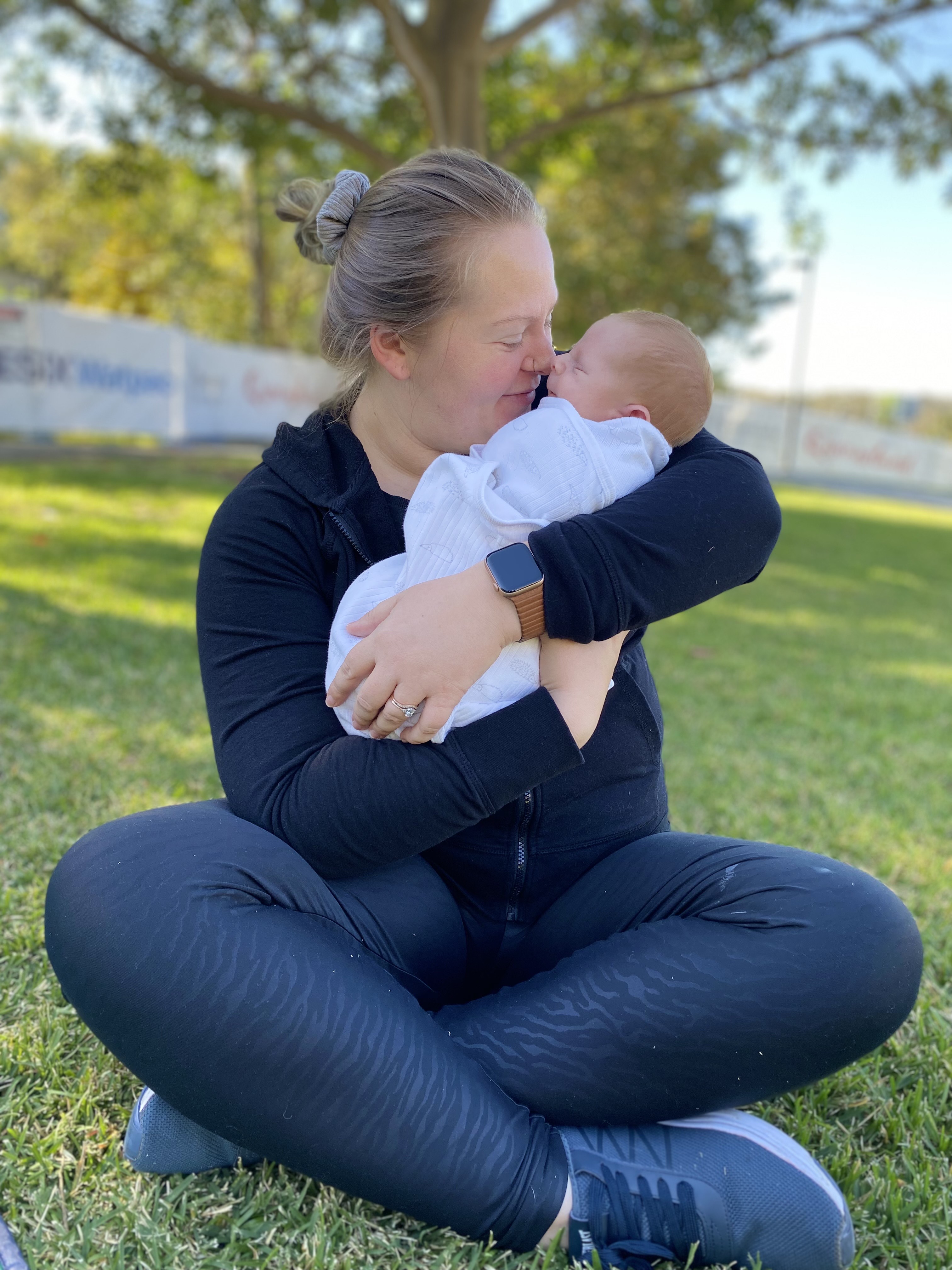
"'You know, you won’t lose anything by calling and chatting to them, even if you don’t think you really need it right now.'"
Learn more about post-partum psychosis
Post-partum psychosis, a serious mental health emergency that requires immediate help. It’s a medical condition, not a personal failing, and it can happen to anyone.
- Recognise the signs: Post-partum psychosis is a severe condition that can involve hallucinations, delusions, paranoia, and a dramatic shift in mood. It is not the same as postpartum depression and requires immediate medical intervention.
- Act fast: If you or someone you know is showing these signs, it is an emergency. Getting immediate medical care can save lives. This is a treatable illness, and acting quickly is what's needed for a life-saving response.
- Ending the stigma: Awareness is critical to ensure that those affected can receive the urgent, life-saving care they need without hesitation or shame.
Extra resources
Learn more about post-partum psychosis
Post-partum psychosis, a serious mental health emergency that requires immediate help. It’s a medical condition, not a personal failing, and it can happen to anyone.
- Recognise the signs: Post-partum psychosis is a severe condition that can involve hallucinations, delusions, paranoia, and a dramatic shift in mood. It is not the same as postpartum depression and requires immediate medical intervention.
- Act fast: If you or someone you know is showing these signs, it is an emergency. Getting immediate medical care can save lives. This is a treatable illness, and acting quickly is what's needed for a life-saving response.
- Ending the stigma: Awareness is critical to ensure that those affected can receive the urgent, life-saving care they need without hesitation or shame.
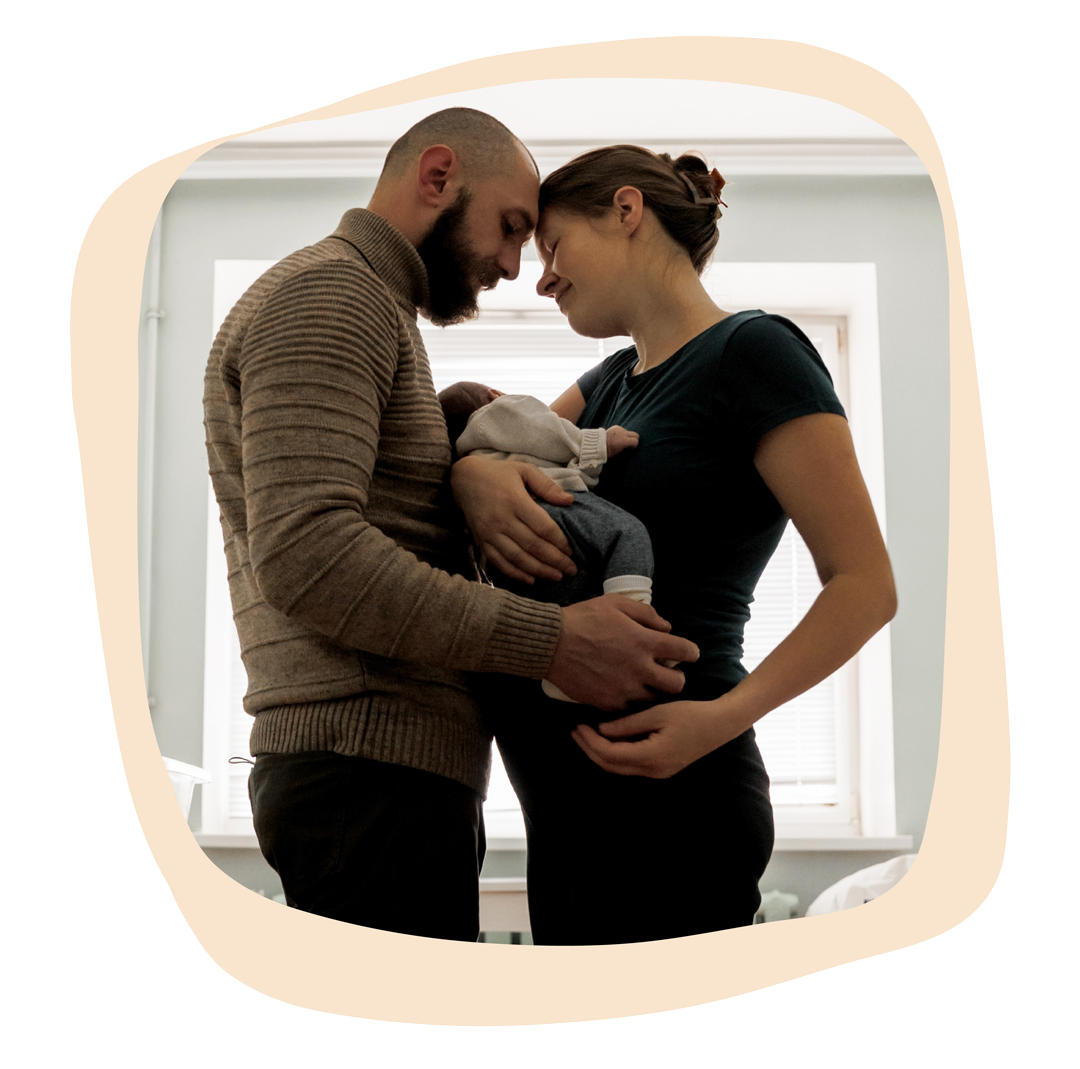
Find the support that's right for you.
Answer a few short questions and we'll suggest organisations and services that can support your needs.





